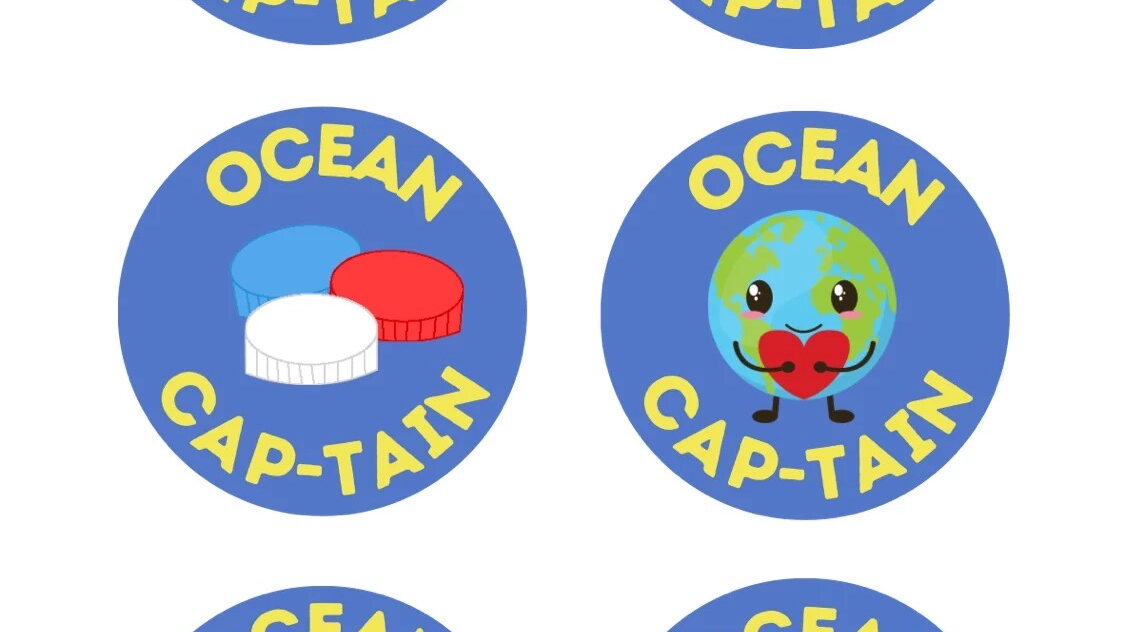Who are we?
We are MK DS group 4 (class 5E) with 31 students and 2 teachers. Our mission is to combat plastic waste and protect our oceans by turning challenges into opportunities.
Our team is focused on two impactful initiatives:
Recycling Bottle Caps: We’re transforming discarded bottle caps into valuable materials and gadgets, giving new life to what would otherwise contribute to environmental pollution.
Eco-Friendly Paper Wrappers: By repurposing sugarcane byproducts (bagasse), we are creating biodegradable paper wrappers, significantly reducing reliance on plastic and promoting a greener packaging solution.
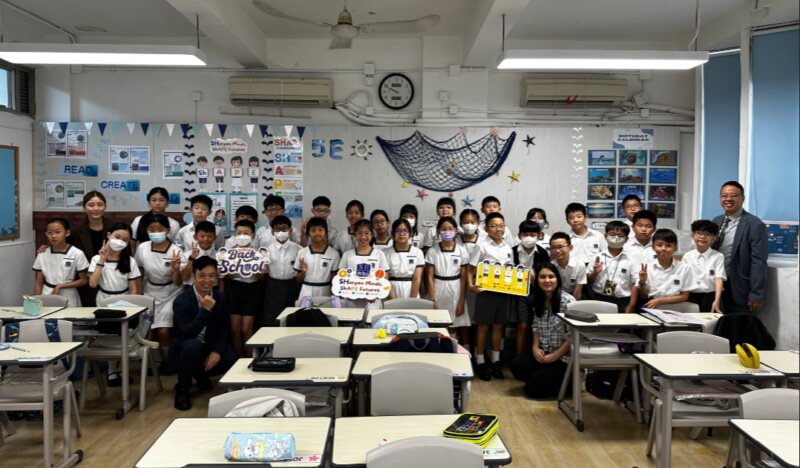
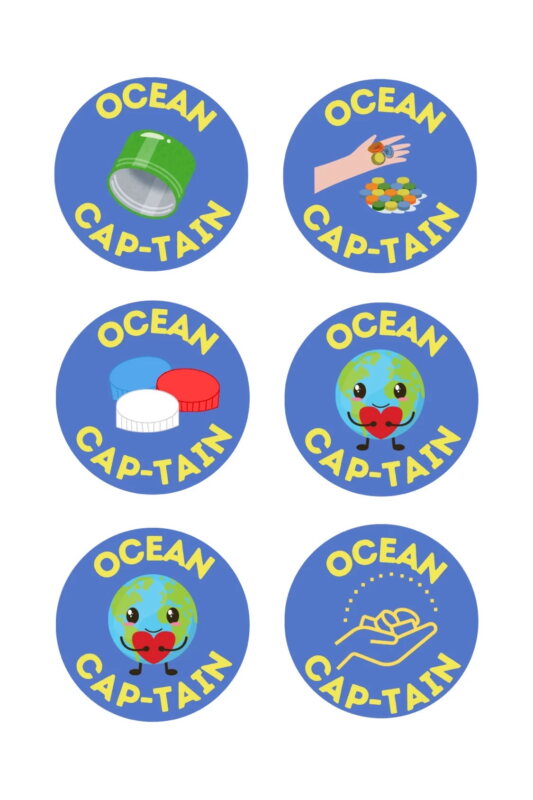
Exploring the project:
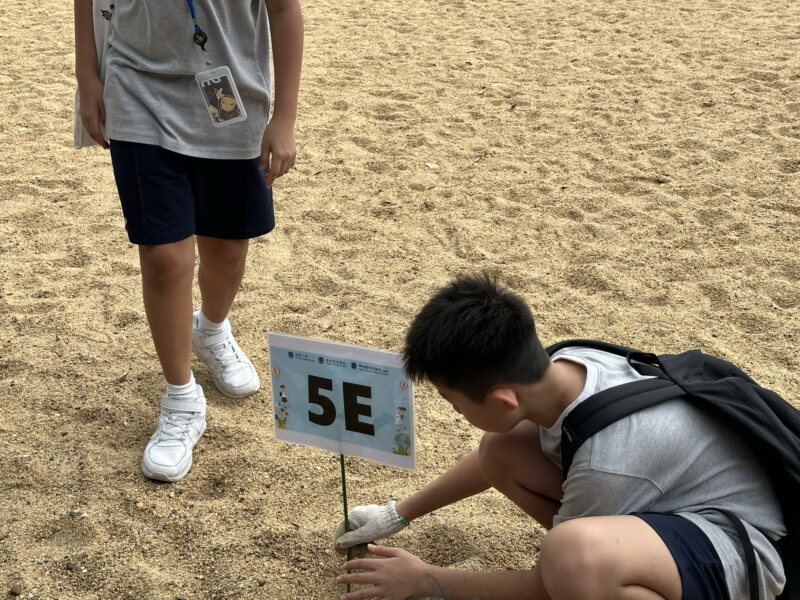
Our project initially centered on the ocean. To immerse students in the sea's challenges, we conducted a beach cleaning activity where they could firsthand experience the issues plaguing our waters. Surprisingly, 70% of the litter collected by students consisted of plastic bottles. This discovery prompted us to shift our focus towards addressing problems associated with plastic containers, with a particular emphasis on the recycling and reuse of plastic bottle caps and other eco-friendly materials.
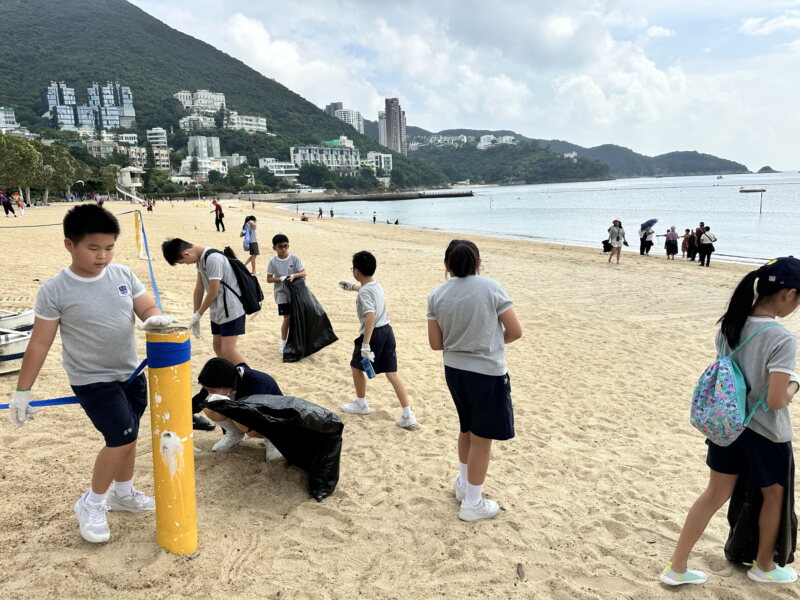
Project Goals:
- Increase Awareness: Educate students and the community about the importance of recycling and its positive impact on ocean health.
- Foster Creativity: Encourage creativity in using recycled materials, demonstrating practical applications and benefits.
- Build Community Engagement: Unite schools, families, and local businesses in a collective effort to promote sustainable practices.
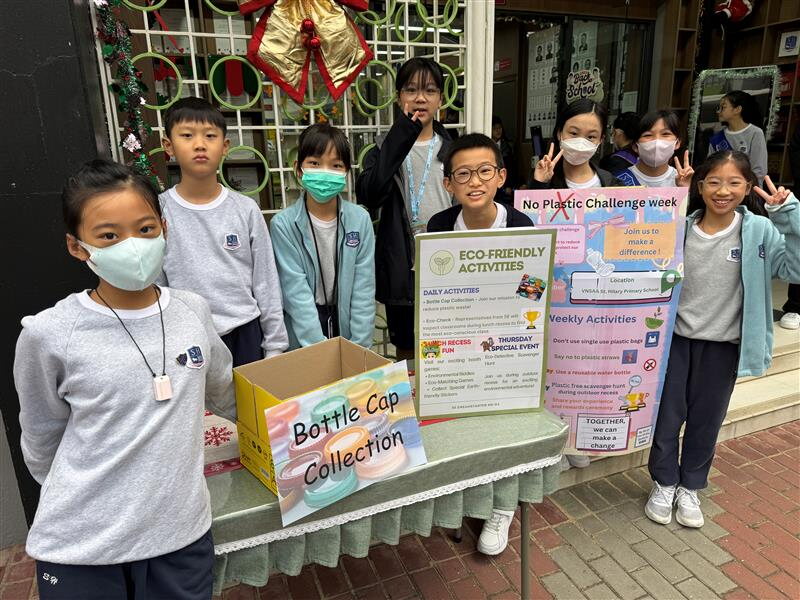
Project procedures:
Part 1: School Awareness Campaign
The first component targets school communities through a No-Plastic Challenge Week. This initiative encourages students to reduce their plastic consumption and promotes environmental responsibility. Activities include:
- Awareness booth activities: Interactive booth games to educate students about the impact of plastic waste on ocean health.
- Incentive Programs: Classes can earn rewards for participation, fostering a sense of community and competition.
- Recycled Art Projects: Utilizing recycled plastic bottle caps to create practical and artistic items, such as planters, wall art, and educational tools. This hands-on approach allows students to visualize the potential of recycled materials.
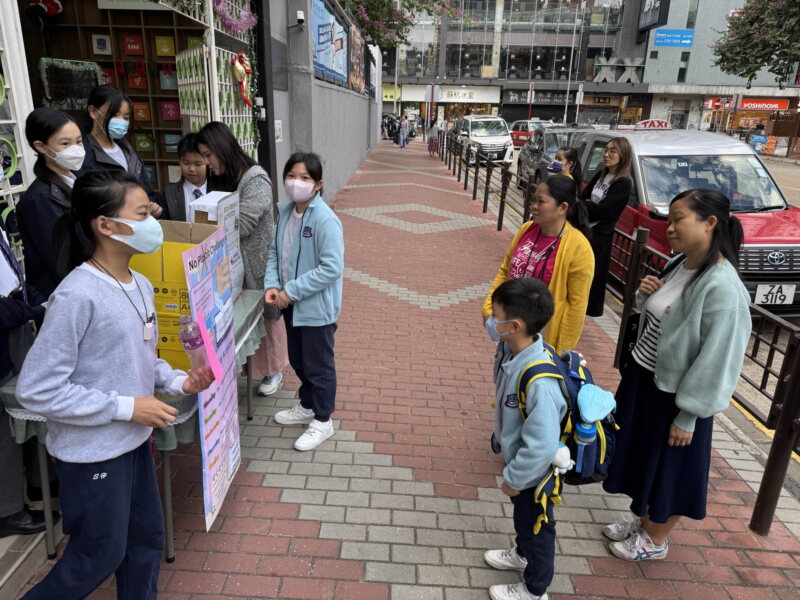
Part 2: Community Eco-Friendly Initiative
The second part of the project aims to extend the message beyond schools by promoting the use of eco-friendly materials through a Recycled-Paper Campaign. Key activities include:
- Partnerships with Local Businesses: Collaborate with local businesses to promote the use of recycled paper products and reduce single-use plastics.
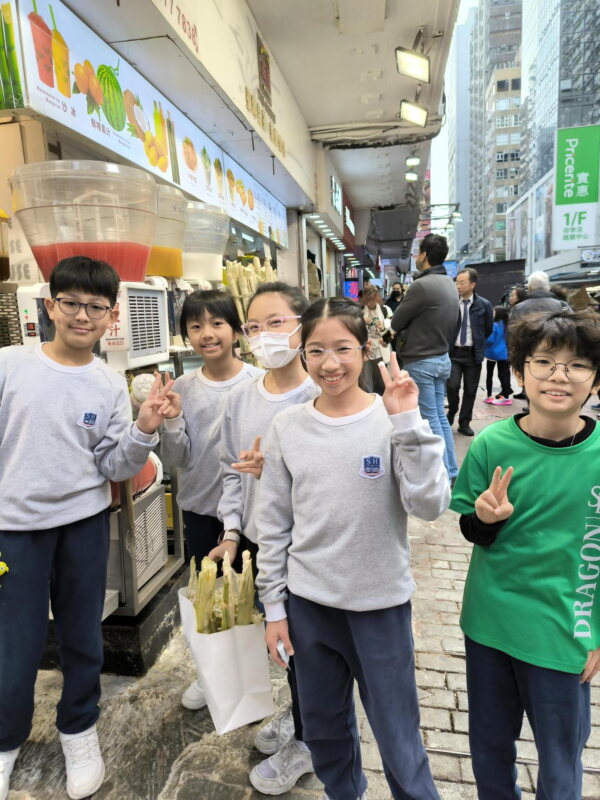
- Workshops on Recycled Paper Production: Students learn how to make recycled paper using eco-friendly materials (bagasse), emphasizing the benefits of reducing waste and conserving resources.
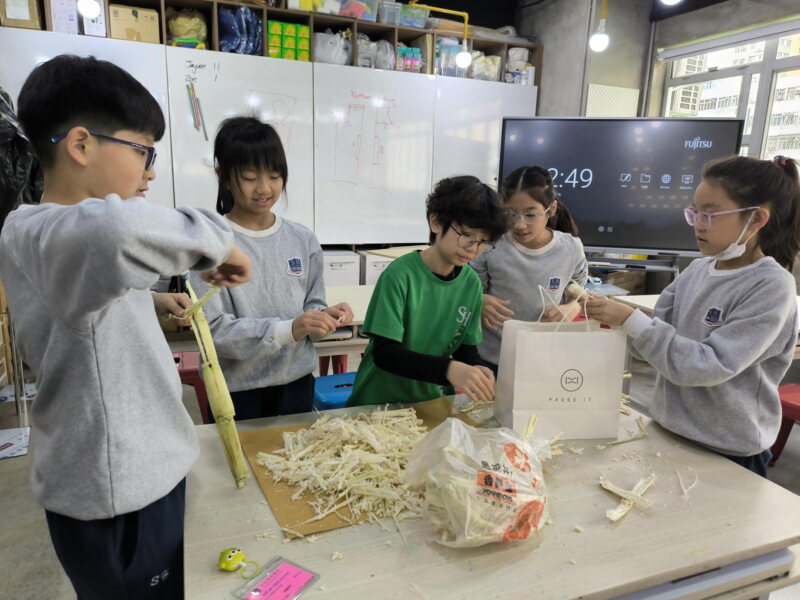
Challenges:
1. Engagement and Participation
- Student Interest: Capturing the attention and interest of students may be difficult, especially in a world filled with digital distractions.
- Community Involvement: Encouraging families and local businesses to participate actively in the initiatives can be challenging.
2. Resource Availability
- Materials for Projects: Sourcing sufficient recycled plastic bottle caps and eco-friendly materials for workshops may be difficult.
- Funding: Securing funds for materials, promotional activities, and workshops could pose a financial challenge.
Support and resources:
1. Community Partnerships
- Local Businesses: Collaborations with local shops and businesses for sponsorships, material donations, and promotional support.
- Nonprofit Organizations: Partnering with environmental nonprofits for guidance, resources, and volunteer support.
2. Funding and Grants
- Grants: Identifying and applying for environmental grants or funding opportunities to support project costs.
- Crowdfunding: Utilizing crowdfunding platforms to raise money from community members interested in supporting sustainability initiatives.
3. Educational Materials
- Workshops and Training: Resources for developing engaging educational materials and presentations on recycling and ocean conservation.
- Instructional Guides: Access to guides on how to create art and practical items from recycled materials, as well as how to make recycled paper.

